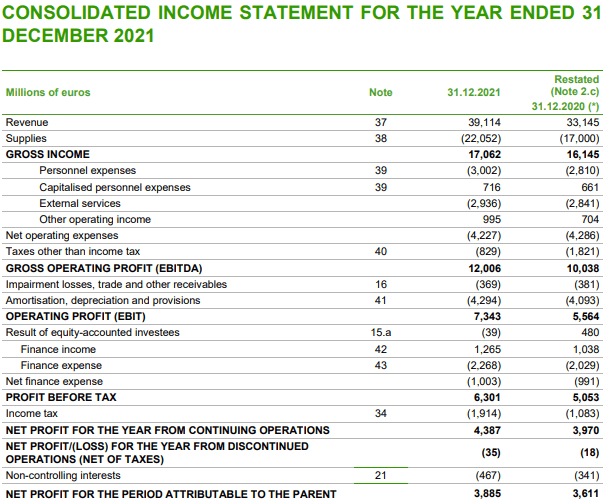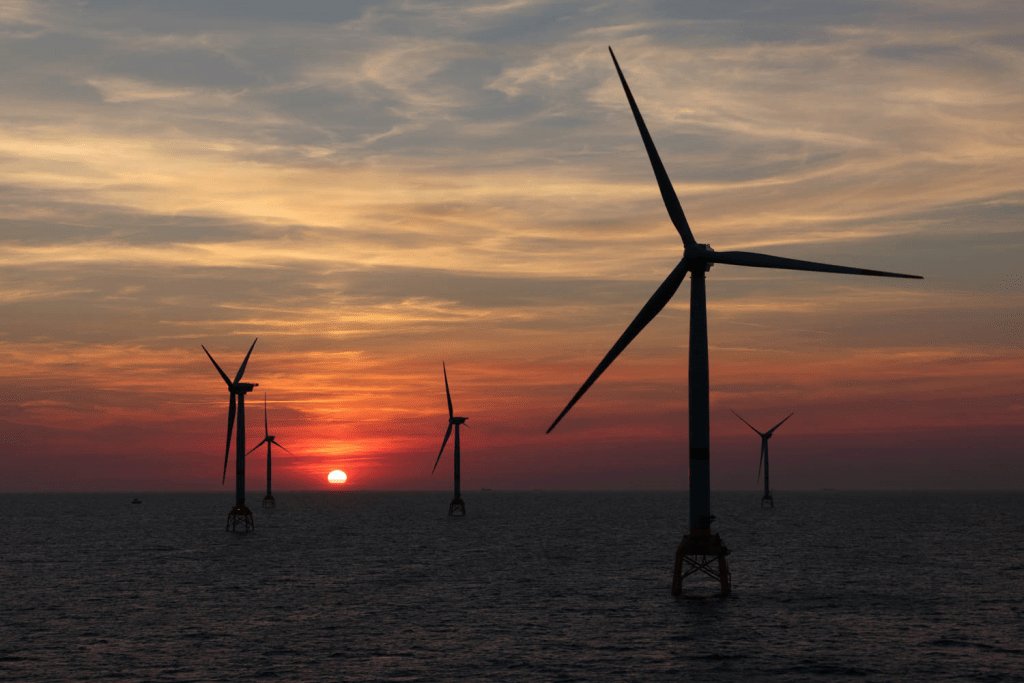Iberdrola, a Spanish company dedicated to the production, distribution and sale of energy, highlighted three of its main operations.
To begin with, Iberdrola, through the company Vineyard Wind, continues with the development of a large-scale offshore wind farm off the coast of Massachusetts, in the United States.
Iberdrola has a capital contribution commitment to finance the development and construction costs of the project amounting to 827 million dollars.
Also in 2021, the company has amortized the capital contributions made previously for a total of 128 million euros.
Likewise, it reached agreements with several banks to obtain the necessary future financing to cover the cost of the project.

On the other hand, in February 2020, Iberdrola Participaciones -a company wholly owned by Iberdrola- and Iberdrola signed an agreement with Siemens Aktiengesellschaft for the sale of Iberdrola Participaciones’ entire stake in Siemens Gamesa Renewable Energy, representing 8.07% of its social capital.
The transaction price amounted to €1.1 billion, equivalent to €20 per Siemens Gamesa share.
The sale was completed on February 5, 2020 and gave rise to a gross capital gain of 485 million euros.
Iberdrola
At the end of fiscal year 2021, Iberdrola’s 10% stake in the Brazilian company Norte Energía (through its subsidiary Neoenergia) meets the requirements of IFRS 5 «Non-current assets held for sale and discontinued operations» for classification as such in the consolidated statement of financial position, to the extent that there is a sale plan at prices that are reasonable compared to the fair value of the assets subject to the transaction; and the sale is expected to be completed within 12 months.
Iberdrola presents the participation in the heading «Assets held for sale» of the consolidated Statement of Financial Position as of December 31, 2021 for an amount of 124 million euros.
Iberdrola is the parent company and holding company of a group of companies present in Spain, Portugal, the United Kingdom, the United States, Mexico and Brazil, among other countries.
The group is structured in three levels to segregate the functions of strategy, supervision and control of the group as a whole (entrusted to the holding company); those of organization and coordination of the businesses of each country (entrusted to the country subholding companies); and those related to the ordinary administration and effective management of each of said businesses (competence of the head of business companies).
![]()

